To provide the best experiences, we use technologies like cookies to store and/or access device information. Consenting to these technologies will allow us to process data such as browsing behaviour or unique IDs on this site. Not consenting or withdrawing consent, may adversely affect certain features and functions.
The technical storage or access is strictly necessary for the legitimate purpose of enabling the use of a specific service explicitly requested by the subscriber or user, or for the sole purpose of carrying out the transmission of a communication over an electronic communications network.
The technical storage or access is necessary for the legitimate purpose of storing preferences that are not requested by the subscriber or user.
The technical storage or access that is used exclusively for statistical purposes.
The technical storage or access that is used exclusively for anonymous statistical purposes. Without a subpoena, voluntary compliance on the part of your Internet Service Provider, or additional records from a third party, information stored or retrieved for this purpose alone cannot usually be used to identify you.
The technical storage or access is required to create user profiles to send advertising, or to track the user on a website or across several websites for similar marketing purposes.
 The pandemic has not led to mass unemployment as many feared, but has instead driven wider shifts that have increased employment among younger women, but pushed many men and older workers out of the labour market altogether, according to new research. More →
The pandemic has not led to mass unemployment as many feared, but has instead driven wider shifts that have increased employment among younger women, but pushed many men and older workers out of the labour market altogether, according to new research. More →





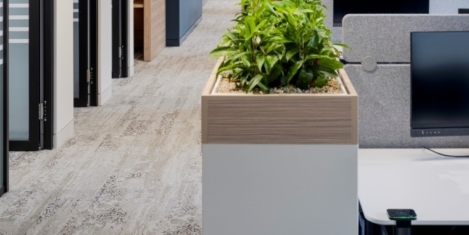
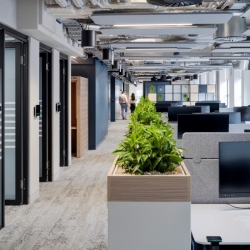 International law firm, Kingsley Napley, have recently moved to Twenty Bonhill Street, London. The new space has been designed with an ‘activity-based’ flexible working model in mind. This entailed creating a range of spaces which suit the various tasks that are necessary in a modern law firm.
International law firm, Kingsley Napley, have recently moved to Twenty Bonhill Street, London. The new space has been designed with an ‘activity-based’ flexible working model in mind. This entailed creating a range of spaces which suit the various tasks that are necessary in a modern law firm. 
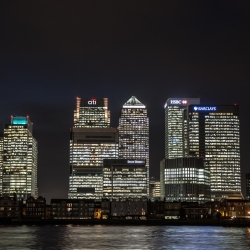 Research carried out by
Research carried out by 
 Due to the significant workplace technology changes brought on by the pandemic, more than half (53 percent) of employers plan extensive organisational transformation in the next two years.
Due to the significant workplace technology changes brought on by the pandemic, more than half (53 percent) of employers plan extensive organisational transformation in the next two years. 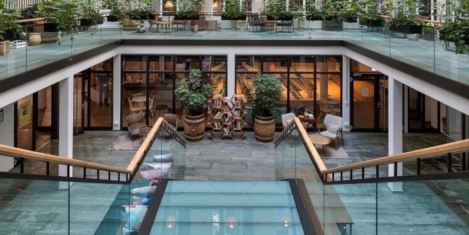


 A new report ‘
A new report ‘
 A survey of hybrid-office and home-based UK workers gives insight for employers into some of today’s biggest needs for office workers to carry out their roles. 73 percent of UK workers believe that the provision of ergonomic work conditions, as well as support for their health, will play a bigger role when choosing a company to work for.
A survey of hybrid-office and home-based UK workers gives insight for employers into some of today’s biggest needs for office workers to carry out their roles. 73 percent of UK workers believe that the provision of ergonomic work conditions, as well as support for their health, will play a bigger role when choosing a company to work for. 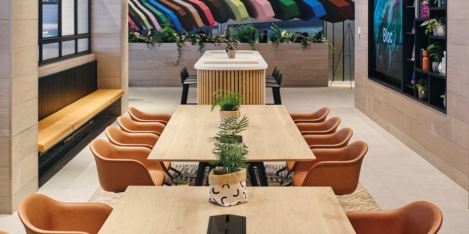
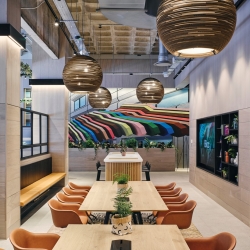


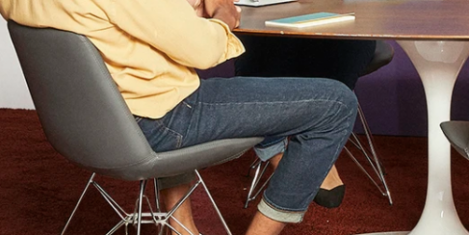
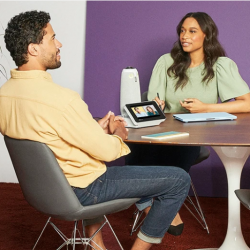

 Predicting the future is a fool’s errand. History is littered with examples of people who got it horribly wrong. In 1876, William Orten, the president of then telegraphy pioneer Western Union, claimed that the telephone was an idiotic, ungainly and impractical idea that would never catch on. Almost a century later, Microsoft’s Bill Gates said that nobody would ever need more than 640KB of memory in a computer. Today’s home computers and laptops can store up to 32GB of memory.
Predicting the future is a fool’s errand. History is littered with examples of people who got it horribly wrong. In 1876, William Orten, the president of then telegraphy pioneer Western Union, claimed that the telephone was an idiotic, ungainly and impractical idea that would never catch on. Almost a century later, Microsoft’s Bill Gates said that nobody would ever need more than 640KB of memory in a computer. Today’s home computers and laptops can store up to 32GB of memory. 









November 29, 2021
Winds of change are blowing through the office
by Ben Capper • Comment, Wellbeing, Workplace design